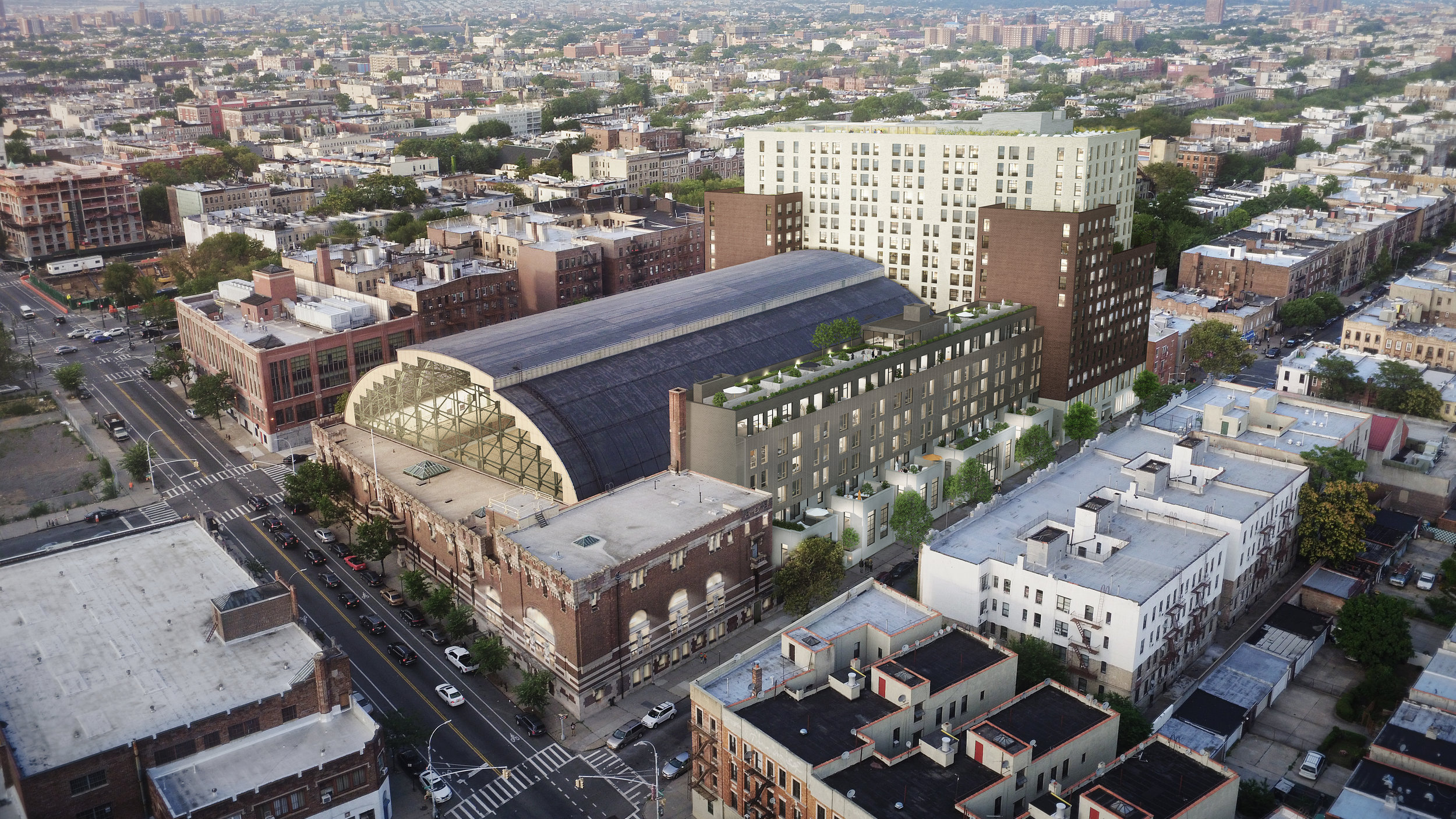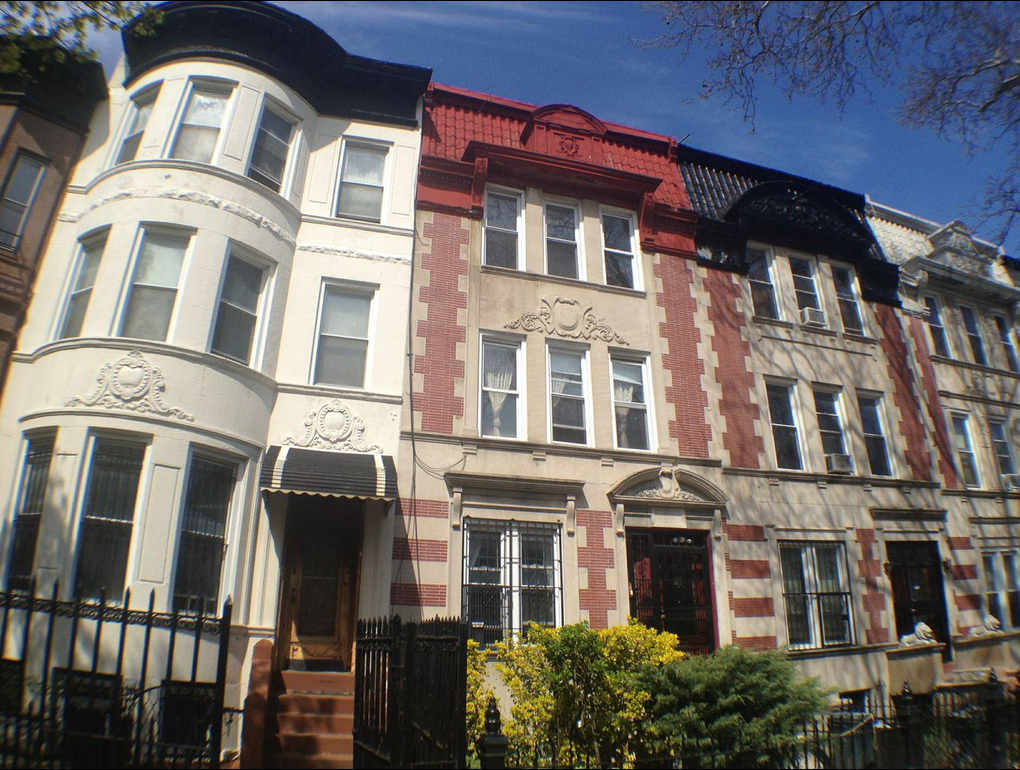Despite opposition, developers break ground on Bedford Union Armory redevelopment

This rendering shows the developer’s vision for the Bedford Union Armory project. Rendering: BFC Partners
The first component of Crown Heights’ Bedford Union Armory redevelopment — a redevelopment detractors continue to oppose — is set to open a year from now.
At a ground-breaking ceremony on Wednesday for the gym and housing development project, City Council Majority Leader Laurie Cumbo passionately defended her work in carrying the project through a contentious public review process while she ran for re-election in 2017 — and coped with a difficult pregnancy.
“Everyone had said to me, ‘You should kill this project — you know you’re going to lose your re-election,’” she told attendees at the ground-breaking. “People also said, “You’re having a baby. Have an easy pregnancy. Why would you put yourself through this?’”
